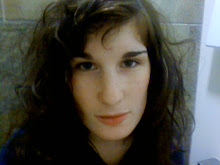Maso calls for experimentation with the shape, movement and arrangement of writing because most literary forms are predictable and, in a way, antiquated. As a self-identified person on the margins, she thinks it is perhaps sacrificing too much for her peers outside of the dominant culture to force their art into the preconceived boxes, the moulds we have used time and time again and just poured a different artist's talents into. She believes that a text has a body, that a text lives in that body, and that we could work toward making the life of the text more visceral, challenging and hypnotizing by making it dance, pause and erupt, as she describes: “The body with its cellular alphabet. And, in another alphabet the desire to get that on the page.” She specifically is concerned about the pressure other writers face from publishers (and their own anxieties about what it means to be published/make it big/legitimize them as an artist in some way) to create the standard, linear novel or short story collection that, as she says, looks like John Updike's writing and not their own. She wants to know what language is capable of when you let it move, and how creating work that is not tied down to the old formats and expectations could unleash a fire on the old notions, and convince the presumably mainstream forces that try to contain the potential flames of minority narratives – lgbtq, black, female, indigenous, latin@, poor—that we aren't going to abide by the assumed boundaries anymore, that we are finally ready to let those words and perspectives and experiences that are beyond simple, unyielding binary constructs explode those binaries, with language simultaneously, as Maso describes it, “continually [opening] new places in [us].”
...
I am simultaneously disappointed and ecstatic to report that I agree with her fairly whole-heartedly. To me, literature is a people's history. In German they use the same word for the words “story” and “history,” Geschichte. We use the same word as story, but stick a male pronoun at the beginning of it, so when Maso was discussing the future being female, I understood it as a pluralistic approach to recording experience that is specific to literature. Beyond that, an encouragement specifically for all of those who are outside of the dominant cultural narrative, who have their own narrative to voice, to do it in their own way and refuse to be custom fit to the needs of the business interests, the publishers, who are ultimately commodifying potentially radical ideas, seeds or letters that if maintained in their original form could build on an emerging, pluralistic, constantly broadening alphabet or vocabulary.
...
I am especially interested in Maso's suggestions for combining old and new forms, as well as using components of various arts and academic disciplines to create something that is fresh and vibrant and not just an assemblage of words or images that we have seen a thousand times before placed in a different sequential order, such as Godard's descriptions of how he makes films “like [he] wanted to write a sociological essay in the form of novel and all [he] had to do it with was notes of music.” I think it would be good if we had to rely on metaphor and simile to explain our craft(s) in this way. Just think how many forms of expression, narrative or otherwise, have been marginalized and repressed by the predominant male, Western forms that we are still using thirty years after people started fighting for a third world consciousness in academics, for the teaching of women's herstories, indigenous studies, for looking at society as a system of interlocking power structures that move and bend and compound oppressions in a plethora of ways. Why not breathe life into ancient forms? Why not study them and combine them with new ones? I am interested to know what we are capable of starting once the cycle of rule-breaking and the introduction of new and old ways of articulating our experiences begins.
...

No comments:
Post a Comment